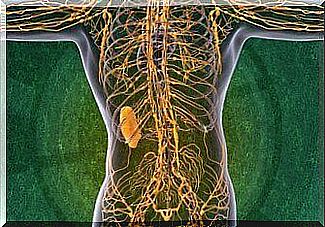If You Don’t Want To Cry, Your Body Will Do It For You

If you don’t want to cry, your body will do it for you. If you force yourself to keep all your sadness inside and you never let your frustrations out for once, then at some point you will explode, as it were.
We are not made to suppress all our emotions without ever expressing them. The fear of how others will react, what they will say about you, or the chance that they will disapprove of you makes you want to keep everything inside.
However, sooner or later, all these pent up emotions will all come out on their own. Keep in mind that if you don’t want to cry, your body will do it for you.
If you don’t want to cry, you’ll suffer

If you never allow yourself to cry, it will only make you experience more of the following problems:
- sadness
- despair
- depression
- fear
You have plenty of opportunities to choose not to let this happen. Keeping everything inside shouldn’t be the path you choose to take.
Let’s give an example. Imagine that your partner is always resting with his feet on the table. You never said anything about this because you wanted to convince yourself in the first place that it didn’t bother you.
The first stage of a love affair makes us pretty silly. However, what happens when this phase is over? Then reality strikes and what you first tried to ignore, now suddenly starts to irritate you beyond measure.
You probably put the blame on the other person. You may occasionally yell, “You know I don’t like that,” or let him know with a sour look that you’re not happy about something.
However, this will not help you at all. You will just pick up on the other person’s behavior over and over again. You will keep giving a disapproving look until one day you go all out over the most trivial thing and explode, as it were.
The mistake you’re making in this case is pretending that something doesn’t bother you and not naming the problem in time. You may think it won’t happen again.
In this case, however, you make one of the biggest mistakes: you enter the world of expectations.
Your body will tell you when it’s not right

If it has become a habit for you to always keep all your feelings inside and if you don’t want to cry, then at some point your body will show some warning signs.
The following and a whole host of other issues can be like a cry for help from your body trying to let you know that something is wrong:
- recurring headache
- fear
- stomach ache
- eczema
It is important not to ignore these types of signs. You may not know what’s going on because the signs are based on a past experience that you don’t even remember well.
However, if these signs start to interfere with your life, if you experience anxiety, or if you’re not feeling well on a regular basis and you’re not happy, then it’s important to start listening to your body.
This is simply sensible. Use the information your body gives you to get to the bottom of the problem. Your body behaves that way for a reason.
Bottled up emotions can make you sick
Your body and mind are connected. By ignoring the problem, you are not addressing the issue at all and your body will try to make it clear to you.
It goes even further than that.
If you don’t try to get to the bottom of the innermost parts of yourself and face what causes so much trouble for you, stomach problems can eventually turn into eczema, eczema into circulatory problems, and circulatory problems into dermatitis .
If you keep ignoring the directions your body is giving you, it will constantly look for a new way to tell you that something is wrong, until you finally put an end to what makes you so unhappy.
Beliefs, traumas and experiences

The problems you experience usually stem from beliefs, traumas, and experiences that you have not voluntarily brought into your head or experienced. However, these beliefs, traumas, and experiences can all be opportunities to open your eyes, to learn, and to let go.
The fear of saying “no” may stem from a belief or traumatic experience that you have carried with you since you were little.
The gigantic fear of saying what you feel the moment you feel it can be the result of an experience that has damaged your self-confidence and made you less confident.
However, do not give in to all these circumstances. There is absolutely no need to sit down and just take everything. Every trauma and every experience is an opportunity to become what you really want to be.

So remember: if you don’t want to cry, your body will do it for you. Learn to give yourself permission to cry when you need to. Free your body from the physical manifestations of your pain.
Are you ready to choose your well-being over your sadness?
Illustrations: Sylvie Ann









